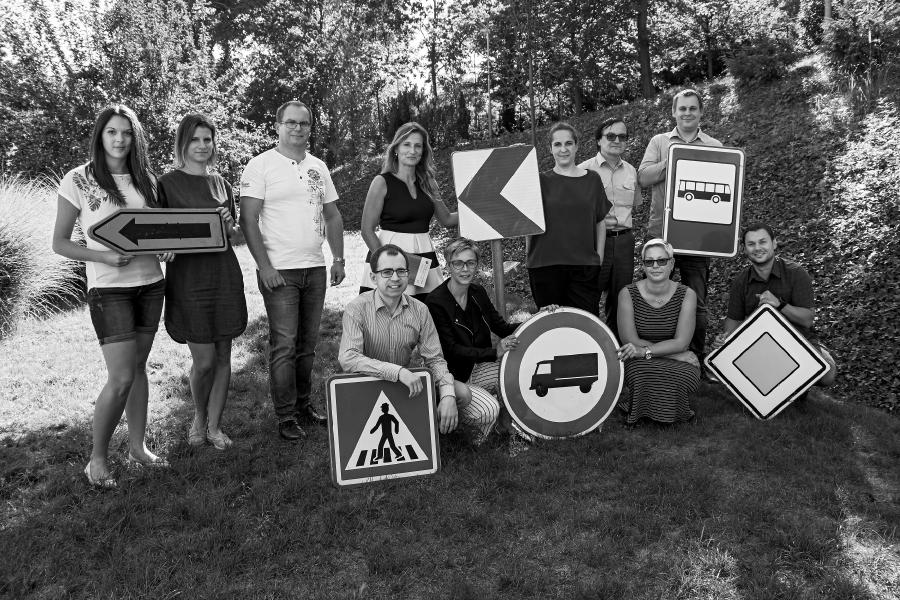Public order
The Department of Public Order deals with a large range of issues: infractions (both traffic infractions and infractions against civil cohabitation), transport and administrative matters, including public roads, as well as traffic signs, driving licenses, consumer protection, population records and the related issue of identity cards, passports, activities of registry offices, etc.
We also focus on property law, i.e., especially the activities of land registry offices and land-use authorities. We deal with problems in civil service and employment with the State (service relationships), provision of information, personal data protection and conduct of the Police (unless it acts in the capacity of a prosecuting body).
Each year, we deal with over 2,000 complaints.
A case of an inaccessible road to a cabin
Jiří owns a cabin, but was unable to get to it. The owner of the neighbouring plot carried out such modifications on the local road that Jiří could no longer use it to drive a car to his cabin. We found that proceedings on the existence of a publicly accessible special-purpose road had already been underway for 10 years and the relevant authority had not ascertained the facts of the case over that time and failed to take proper evidence. Although landscaping modifications make the road unusable for traffic, the relevant municipality did not even initiate proceedings on removal of the obstructions. We approached the regional authority as the municipal administration’s superior body and advised the regional authority of the municipality’s inactivity. The regional authority intervened and ordered the municipality to check whether the road was still obstructed by the landscaping modifications. If it were, the regional authority ordered the authority to immediately initiate proceedings on removal of the obstruction to ensure that the road was usable for traffic.
A case of recording a mayor’s public meeting regarding a municipal project
Marek took part in a meeting in a neighbouring village concerning the construction of a sewer system. This was a public meeting convened by the mayor with participation of the designer of the project, officers and an investment adviser. Marek was making a video recording, but the mayor informed the persons present that, according to the police, Marek was not allowed to make a recording of the meeting. When Marek disagreed, the mayor called in the police who asked him to stop recording. When he refused to obey, the officers detained him and took him to a police station in handcuffs. We notified the regional police director that the meeting was public and concerned a matter of public interest, therefore making a video recording of it was not illegal. The police admitted their error, apologised to Marek and the police officers concerned were advised on how to proceed in similar cases.
A case of a foster mother who was unable to apply for a passport for the child placed in her care
Magda is a foster mother. For summer holidays, she planned to take the child placed in her care to the seaside. However, she found out that it was not so easy. In order to apply for the child’s passport, she had to obtain court approval because this was not an “everyday matter” falling within the foster parent’s discretion. This, however, delays the passport application. We came to the conclusion that nowadays, children travel abroad on a regular basis. Both school and family trips to other countries are common and, therefore, court approval should not be required. Following our intervention, the Ministry of the Interior and the Ministry of Justice changed their procedure and, consequently, the legal representative’s consent or a confirmation issued by the body for social and legal protection of children is now sufficient for a foster parent to apply for their foster child’s passport.
A case of official trouble caused by a delinquent namesake
Jiří, who lives in Moravia, learned that he had a namesake in another Czech district who had been born on the same day. He learned this from the private enforcement agent who was looking for Jiří’s namesake. All this was explained after Jiří’s identity card was checked because the sequence of digits following the slash in Jiří’s birth identification number was different from that of his namesake’s. However, more private enforcement agents kept bothering Jiří with requests for further explanation. In one case, Jiří was even detained by the police because his namesake was a wanted person within a nationwide manhunt. In the end, Jiří was asked to surrender his driving license, as, supposedly, a 20-month ban on driving of motor vehicles had been imposed on him. It was found that the officials had not properly checked his personal data. Upon finding a corresponding name and date of birth, they did not care the address was different, as they supposed that Jiří had moved. After our intervention, they apologised to Jiří and promised to check personal data in the population register more carefully.
A case of a contract concluded over the phone and unfair commercial practices
Václav was offered to purchase a food supplement over the phone. He was convinced that he had not agreed to purchase the product regularly, but the company insisted that he had entered into a purchase contract over the phone and demanded money from him. Václav withdrew from the contract and complained to the Czech Agriculture and Food Inspection Authority. However, according to the Inspection Authority, the case at hand did not constitute unfair commercial practices. After analysing the recordings of the interviews, we reached the opposite conclusion and discussed the case with the Inspection Authority. We insisted that they had to proceed more effectively. In the end, the Inspection Authority initiated an inspection of the company, demonstrated unfair commercial practices on its part and forced the company to provide remedy and act in accordance with the law.
Have a look at the outputs from our activites or look up interesting cases we dealt with in the Defender’s Opinions Register.

